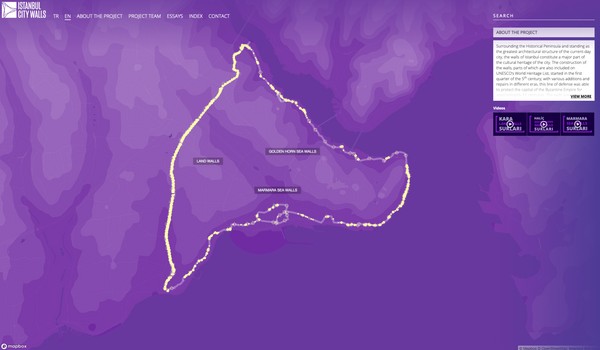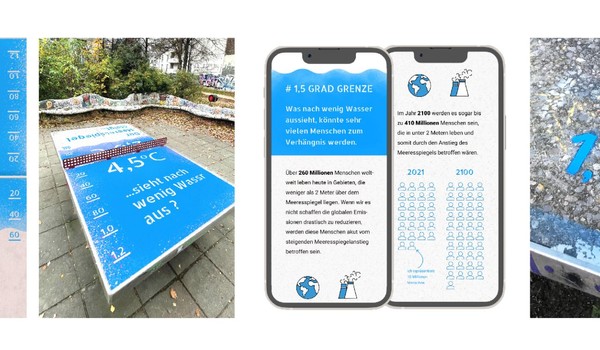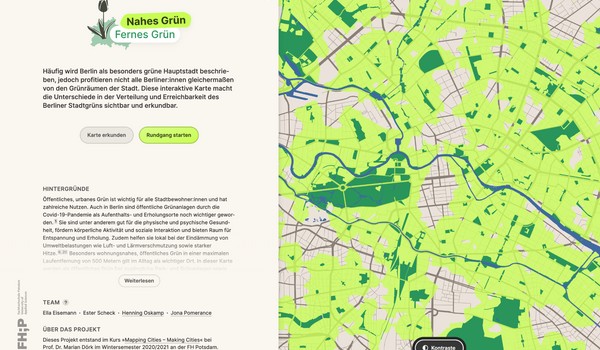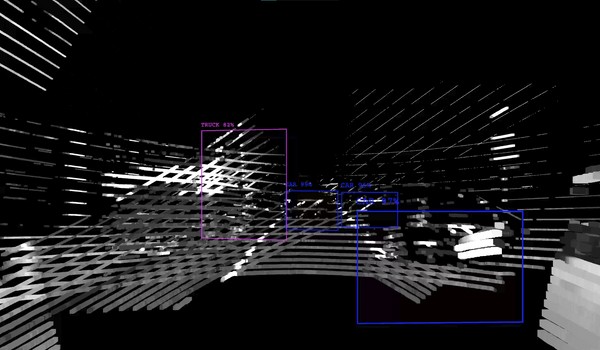Learn from the past, understand the present, and plan for a better future.
Our urban systems are interwoven with digital infrastructures. Data has become an essential component for modern services, from managing urban mobility to guiding political decision making. This new layer in our cities is mostly invisible, yet its impact can be experienced virtually in every sector of the contemporary city.
The combination of openly accessible data and meaningful visualisation approaches can lead to more transparency and trust in our cities. Time after time, we witness how visualising open data can be a powerful tool for cities wanting to experiment with new approaches towards urban planning, as well as how open data can help citizens understand the inner workings of their cities. The visualisations shown in this competition exemplify the powerful role open data can play in urban settings.
The CityVis 2022 competition presents the best submissions from the CityVis.io platform, as selected by an international program committee. The platform was launched in 2016, when the first exhibition of works was presented at the UN conference Habitat III in Quito, Ecuador. Since then, the project has grown to an international and interdisciplinary platform for knowledge exchange around the topic of urban data visualisation.
The best works of this year's competition will be on show as posters in Potsdam's Science Showroom from November till December. For the opening of the exhibition, we held a symposium on new perspectives on the smart city. You find out more about the symposium here.
 Research
Research
The Modality tool transforms this data into interactive maps and allows everyone to understand how transportation affects daily life. In this case study, the Modality tool is used to compare the public transport netwok in 2021 vs in 2030 in the Paris area. It shows how the new lines of the Grand Paris Express will improve access to the area for nearly 5 million inhabitants.
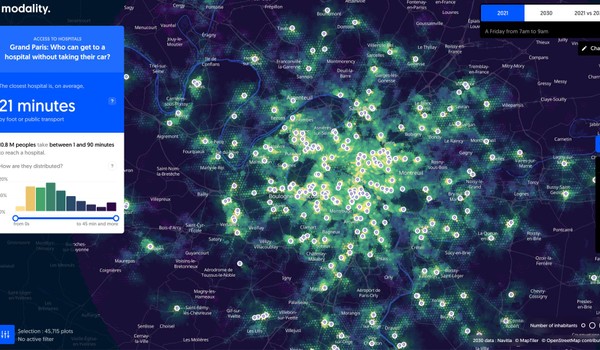
Shortlisted
-
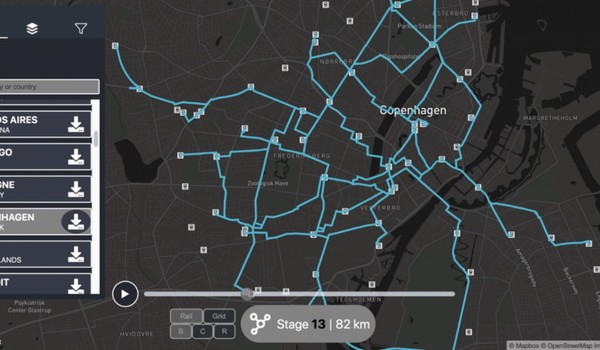 GrowBike.Net
Morten Lynghede, IT University of Copenhagen; Cecilia Laura Kolding Andersen, IT University of Copenhagen; Michael Szell, IT University of Copenhagen
GrowBike.Net
Morten Lynghede, IT University of Copenhagen; Cecilia Laura Kolding Andersen, IT University of Copenhagen; Michael Szell, IT University of Copenhagen
-
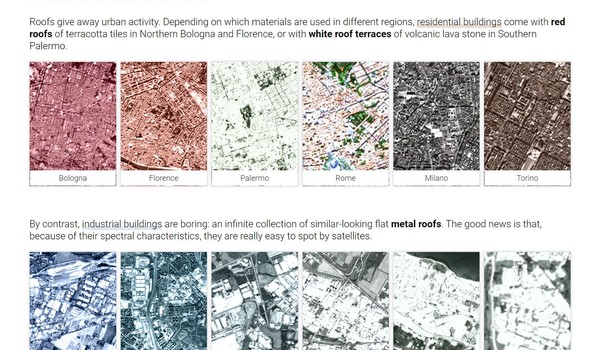 Jane Jacobs in the Sky
Edyta Bogucka, Nokia Bell Labs, UK; Sanja Šćepanović, Nokia Bell Labs, UK; Sagar Joglekar, Nokia Bell Labs, UK; Stephen Law, University College London & The Alan Turing Institute, UK; Daniele Quercia, Nokia Bell Labs, UK
Jane Jacobs in the Sky
Edyta Bogucka, Nokia Bell Labs, UK; Sanja Šćepanović, Nokia Bell Labs, UK; Sagar Joglekar, Nokia Bell Labs, UK; Stephen Law, University College London & The Alan Turing Institute, UK; Daniele Quercia, Nokia Bell Labs, UK
 Jounalistic
Jounalistic
Glocal Climate Change is a project that translates the Copernicus open data into an immersive visual narration to make climate data accessible to a broader audience. It develops upon a never seen hyper granular map that returns the climate of more than 100.000 EU municipalities in a single view.
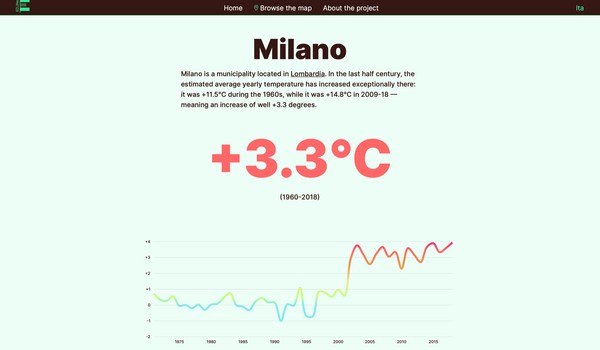
 Art & Advocacy
Art & Advocacy
Visitmyorbit is a portal into the life of contemporary artists working in various fields. The site shows artists' motivations, studio locations as well as 773 connections among them – creating an inside view into the networks of 150 artists presented on visitmytent.com.
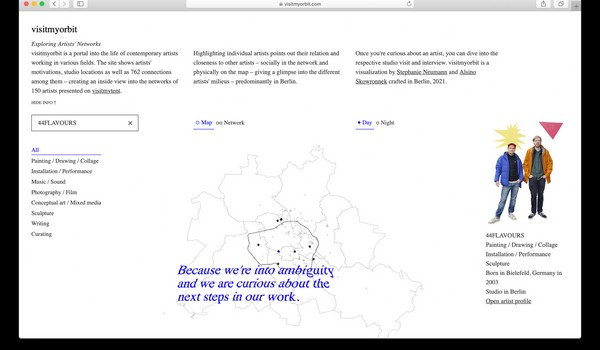
 Contract
Contract
CicloMapa
1) ITDP Brasil, 2) UCB
Brazil Cyclists Union and the Institute for Transport and Development Policy have developed the first cycling maps platform encompassing all Brazilian cities, leveraging the open data and collaborativeness of OpenStreetMap (OSM).
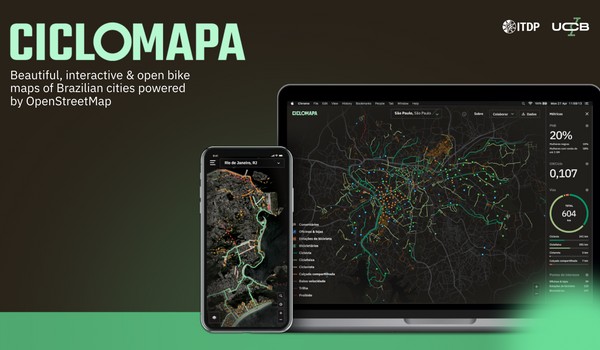
 Student
Student
A Town For All
Potsdam University of Applied Sciences
In order to make the city friendlier and more inclusive for all species, alternative city concepts that truly offer living space for all can be developed on an experimental basis. In the game, all players work together to build a city that corresponds to their imagination using various structural and natural building blocks.

Organizers
Program Committee
This year's competition is run by researchers at the University of Applied Sciences Potsdam (FHP). The project selection for the City Vis 2022 competition is conducted through a review process of an international expert committee. The international program committee consist of experts from visualization research, urban sciences and communication. We are very thankful for their support and the time they have invested into the initiative.
Chairs
- Sebastian Meier Potsdam, University of Applied Sciences
- Giacomo Marinsalta Potsdam, University of Applied Sciences
Program Committee
- Alex Godwin American University
- Amit Jena Monash University
- Andre Vande Moere KU Leuven
- Damla Çay Koç University
- David Hunter Ravensbourne University
- Hans Hack hanshack.com
- Hareesh Kumar Indian Institute of Technology Bombay
- Heike Vornhagen Insight Centre
- Hilke Berger CityScienceLab Hamburg (HCU)
- Imanuel Schipper CityScienceLab Hamburg (HCU)
- Immelyn Domnick Berlin Technical University (BTH)
- Juan Carlos Carvajal Bermúdez CityLAB Berlin
- Juan Francisco Saldarriaga Columbia University
- Lyn Bartram Simon Fraser University
- Marian Dörk Potsdam University of Applied Sciences
- Maxim Spur Goethe-University Frankfurt
- Michael Szell IT University of Copenhagen
- Miriah Meyer Linköping University
- Nicole Hengesbach University of Warwick
- Priyanka Mary Mammen University of Massachussets, Amherst
- Rodrigo Medeiros Instituto Federal da Paraíba
- Ryan Sheng-Ming Wang National Taipei University of Technology
- Sarah Goodwin Monash University
- Till Nagel University of Applied Sciences Mannheim
- Vincent Tourre Nantes University
- Xavier Ho Monash University
Contact
If you have any questions don't hesitate contacting us
sebastian.meier@fh-potsdam.de




